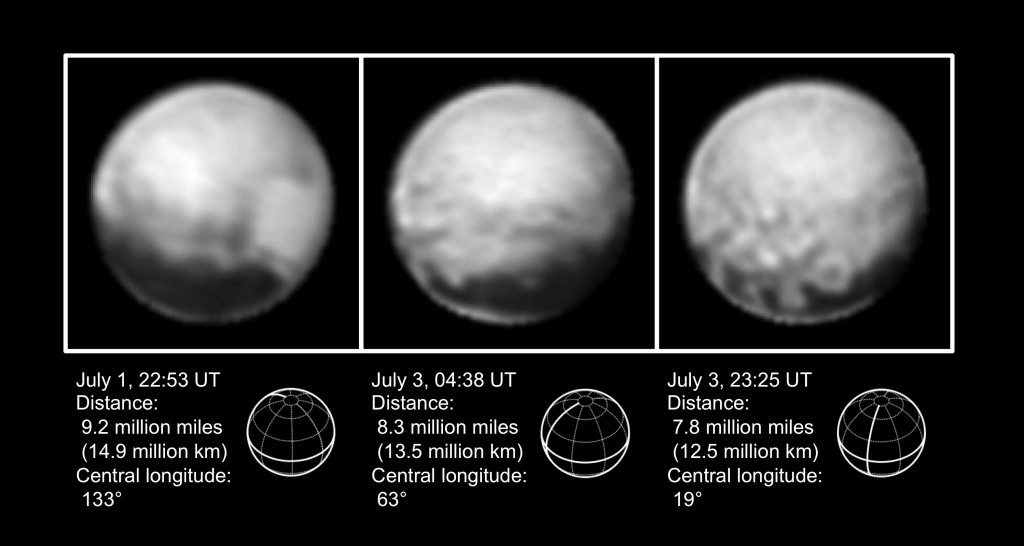I’ll be somehow shuttling from a team picture and dive meet, rushing to a marshal arts test, and attending a rock concert – all slotted at the same time. On my epicenter of an overscheduled summer, there is something else far off that is immediate and worth noticing.
Having left Earth 9 years ago and traveling an inconceivable 3 billion miles, the New Horizon on July 14th makes its closest approach to Pluto and for the first time lets us get a close look at the fringes of our solar system via NASA TV.
Pluto Day is a testament that curiosity, creativity, and long range planning can co-exist. It marks a great achievement for mankind and provides us a glimpse of what the origin of the universe was like. But is Pluto on your radar screen and are you going to watch?
Pluto has had a rocky time. In the same year of New Horizon’s launch, by the vote of a small number of astronomers, Pluto controversially lost its status along with all its rights and privileges of a full planet. Tiny Pluto, named for an underworld god has an unsightly mess of objects in its orbit and apparently isn’t very unique. We can only hope the chemists don’t exclude little Hydrogen from the periodic table and the cartographers don’t re-labeled the Artic Ocean as a mere sea.
Right away, our phones will stream with pictures of Pluto posing with Charon its largest moon and best friend, but the real data will take some sorting out and this doesn’t play well with the instant media we come to expect. And unfortunately for Pluto, while we’re rushing around through our daily demands, things like testing for a Taekwondo belt becomes more relevant to us than examining the Kuiper belt. Poor Pluto, a bit of an underdog and as seemingly remote from us as a lazy summer day, while won’t be a moon landing moment, it will matter to some of us. And it’s the sum of us that matters.
So the question is: Do you have a Pluto problem? Have you been keeping your mysteries to yourself? Have you been working on something creative for a long time and producing sometime incredible but feeling like a tiny speck standing 3 billion miles away?
If a great achievement such as the mission to Pluto is receiving little attention, how can we get noticed for what we create right here on earth?
While the enthusiasts will watch NASA TV, there are other channels competing for attention. If we forget about reaching the universe and instead consistently create our best work, we can find our own channels and reach the people who our work will matter most. Happy Pluto Day!
What’s your Pluto Problem?
